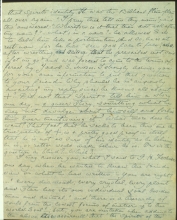Страница 13
that spirit's identity. It was the Biblical flim-flam all over again. "I pray thee tell me thy name" — and though answered: "Wherefore is it that thou dost ask after my name?" — what's in a name? — he allowed S.M. to label him like a portmanteau. And so, he is at rest now, for be has "seen God face to face"; who, after wrestling, and seeing that he prevailed not, said "let me go" and was forced to come to the terms offered by Jacob S. Moses. I strongly advise you for your own information to put that question to your friend. Why should he be "anxiously awaiting" my reply, since he knows all about +? Did not that "Spirit" tell him a story one day, — a queer story, something what he may not divulge about himself and forbid him ever mentioning it? What more does he want? That fact, that he seeks to learn through me the true nature of +, is a pretty good proof in itself that he is not as sure of his identity as he believes he is, or rather would make believe he is. Or is the question a blind? — which?
I may answer you, what I said to G. H. Fechner one day, when he wanted to know the Hindu view on what he had written — "You are right; . . . 'every diamond, every crystal, every plant and star has its own individual soul, besides man and animal . . .' and, 'there is a hierarchy of souls from the lowest forms of matter up to the World Soul' . . .; but, you are mistaken when adding to the above the assurance that 'the spirits of the



the Biblical flim-flam quotations are from Genesis 32:29, when Jacob wrestled with an angel (or with Yahweh) and was given the name Israel. Flim-flam can refer to nonsense or to deception.
Portmanteau is a piece of luggage; it can also be a combination of two (or more) words or morphemes into one new word.